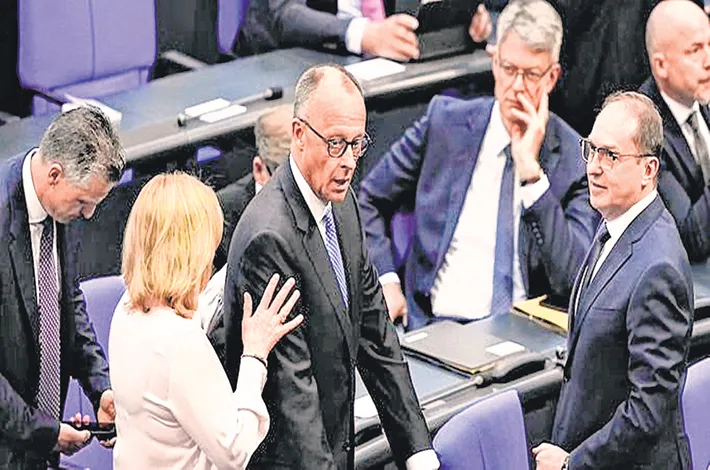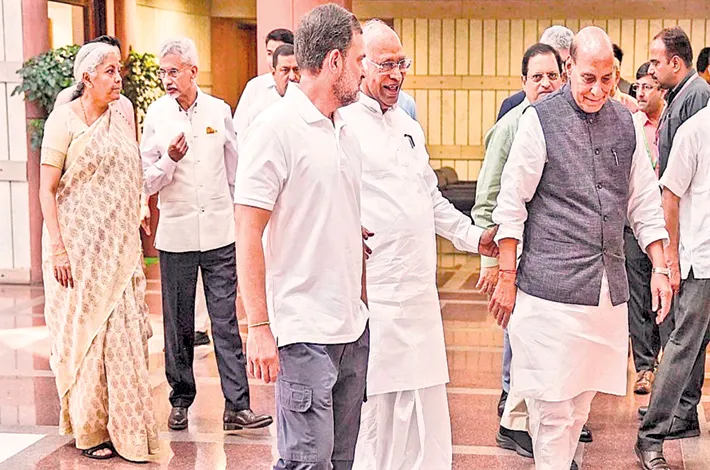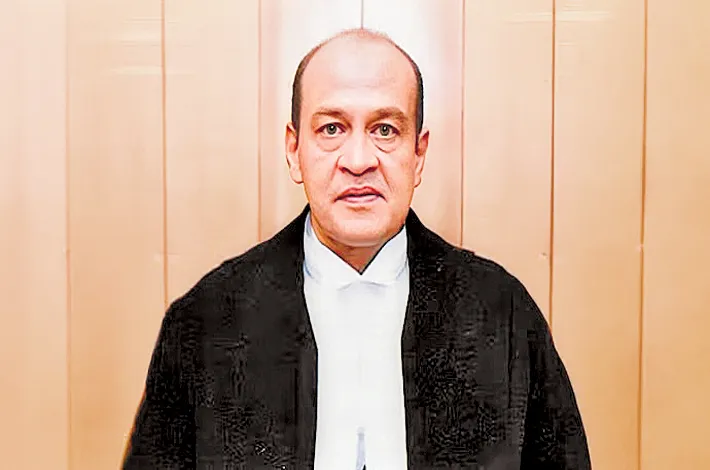Merz magic works in 2nd vote
07-05-2025 12:00:00 AM

German chancellor | Conservative leader bounces back after 1st round jolt
Man of the moment
- Merz, a commercial lawyer, has never previously held a top governmental office with significant leadership responsibilities. He has never been a federal minister, or a state premier, or even mayor of a small town
- The 69-year-old will be the oldest chancellor to take office since Konrad Adenauer, the first post-war German head of government (1949–1963)
- He is considered to be a "trans-atlanticist, friend of Europe, and reformer"
-The next government's challenges include compensating for US's dwindling commitment to European defence under Trump and restructuring the economy
Agencies Berlin
German conservative leader Friedrich Merz was elected chancellor by parliament on Tuesday in a second round of voting after a humiliating and unprecedented defeat on the first attempt, getting his coalition government off to a weak start.
Merz, 69, who led his conservatives to a federal election victory in February and has signed a coalition deal with the centre-left Social Democrats (SPD), won 325 votes, nine more than needed for an absolute majority, in the secret ballot. He had secured just 310 votes in the first round of voting, meaning at least 18 coalition lawmakers failed to back him.
After the vote, he headed to the nearby Bellevue Palace to be formally nominated by President Frank-Walter Steinmeier. Later, he will return to the historic Reichstag building in the heart of Berlin to take the oath of office to become Germany's 10th chancellor since the end of World War Two. Merz is under heavy pressure to show German leadership after the implosion last November of outgoing SPD Chancellor Olaf Scholz's three-way coalition left a political vacuum at the heart of Europe even as it faced a myriad of crises.
"People have been asking Germany to lead for a long time, and there is no more space to not heed that call," said Sudha David-Wilp of the German Marshall Fund of the United States. "Everything that had been undergirding post-war Germany in the past eight decades is no longer the case, whether it be open markets and free trade, whether it be the U.S. security presence in Europe."
A global trade war sparked by U.S. President Donald Trump's sweeping import tariffs is threatening a third year of downturn in Europe's largest economy, which has already had to grapple with the end of cheap Russian gas since Russia's full-scale invasion of Ukraine in 2022 and growing rivalry from China. Meanwhile, Trump has threatened not to come to the aid of the NATO alliance, prompting even transatlanticist Merz to question the reliability of the United States as a top security ally and urge Europe to improve its ability to defend itself.
The German coalition deal has mapped out plans to revive growth such as reducing a corporate tax and lowering energy prices. It also vows strong support for Ukraine and higher military spending. But Merz's failure to win backing for his chancellorship at the first attempt is a first for post-war Germany and an embarrassment.








